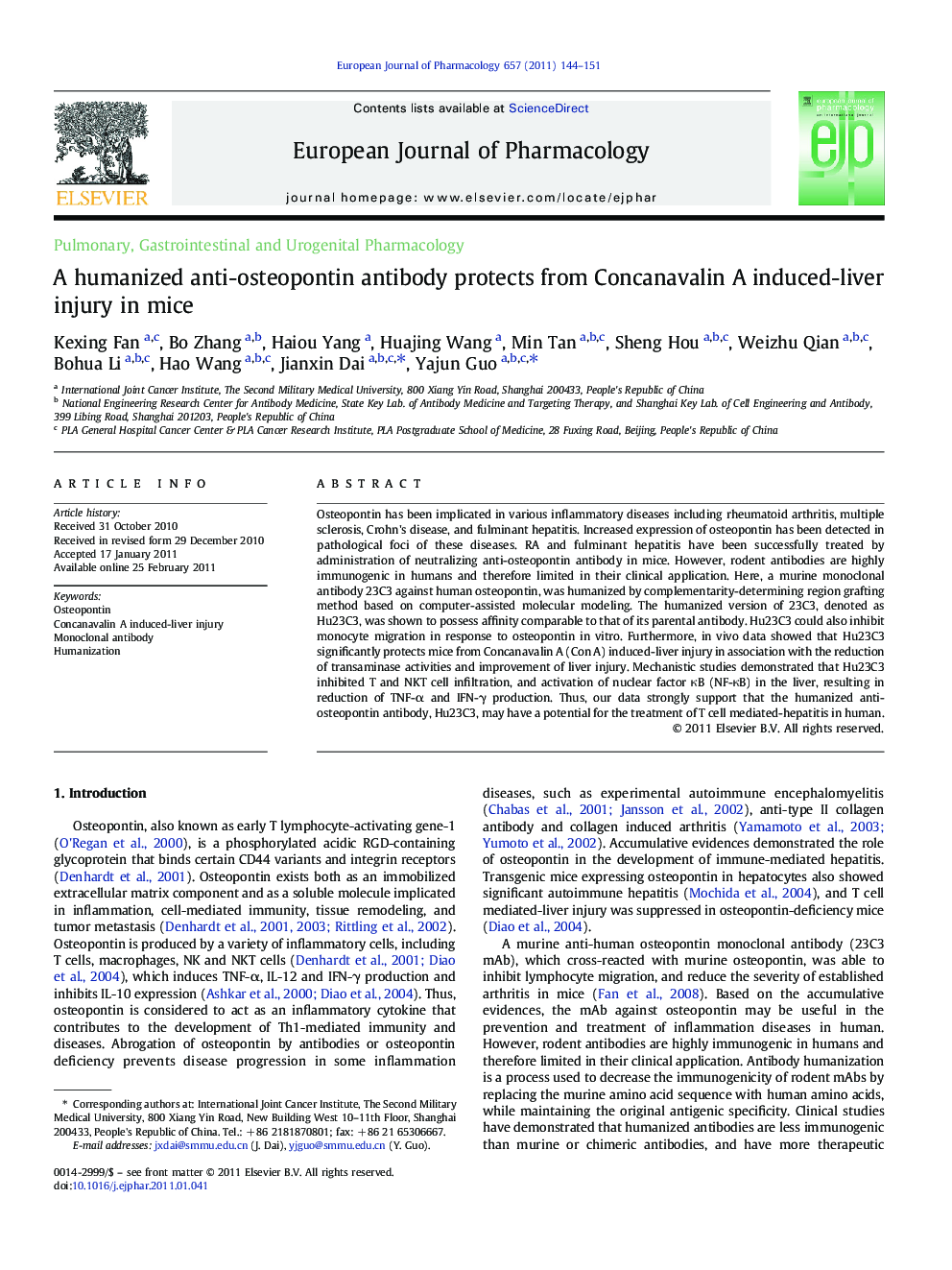| Article ID | Journal | Published Year | Pages | File Type |
|---|---|---|---|---|
| 2532894 | European Journal of Pharmacology | 2011 | 8 Pages |
Osteopontin has been implicated in various inflammatory diseases including rheumatoid arthritis, multiple sclerosis, Crohn's disease, and fulminant hepatitis. Increased expression of osteopontin has been detected in pathological foci of these diseases. RA and fulminant hepatitis have been successfully treated by administration of neutralizing anti-osteopontin antibody in mice. However, rodent antibodies are highly immunogenic in humans and therefore limited in their clinical application. Here, a murine monoclonal antibody 23C3 against human osteopontin, was humanized by complementarity-determining region grafting method based on computer-assisted molecular modeling. The humanized version of 23C3, denoted as Hu23C3, was shown to possess affinity comparable to that of its parental antibody. Hu23C3 could also inhibit monocyte migration in response to osteopontin in vitro. Furthermore, in vivo data showed that Hu23C3 significantly protects mice from Concanavalin A (Con A) induced-liver injury in association with the reduction of transaminase activities and improvement of liver injury. Mechanistic studies demonstrated that Hu23C3 inhibited T and NKT cell infiltration, and activation of nuclear factor κB (NF-κB) in the liver, resulting in reduction of TNF-α and IFN-γ production. Thus, our data strongly support that the humanized anti-osteopontin antibody, Hu23C3, may have a potential for the treatment of T cell mediated-hepatitis in human.
